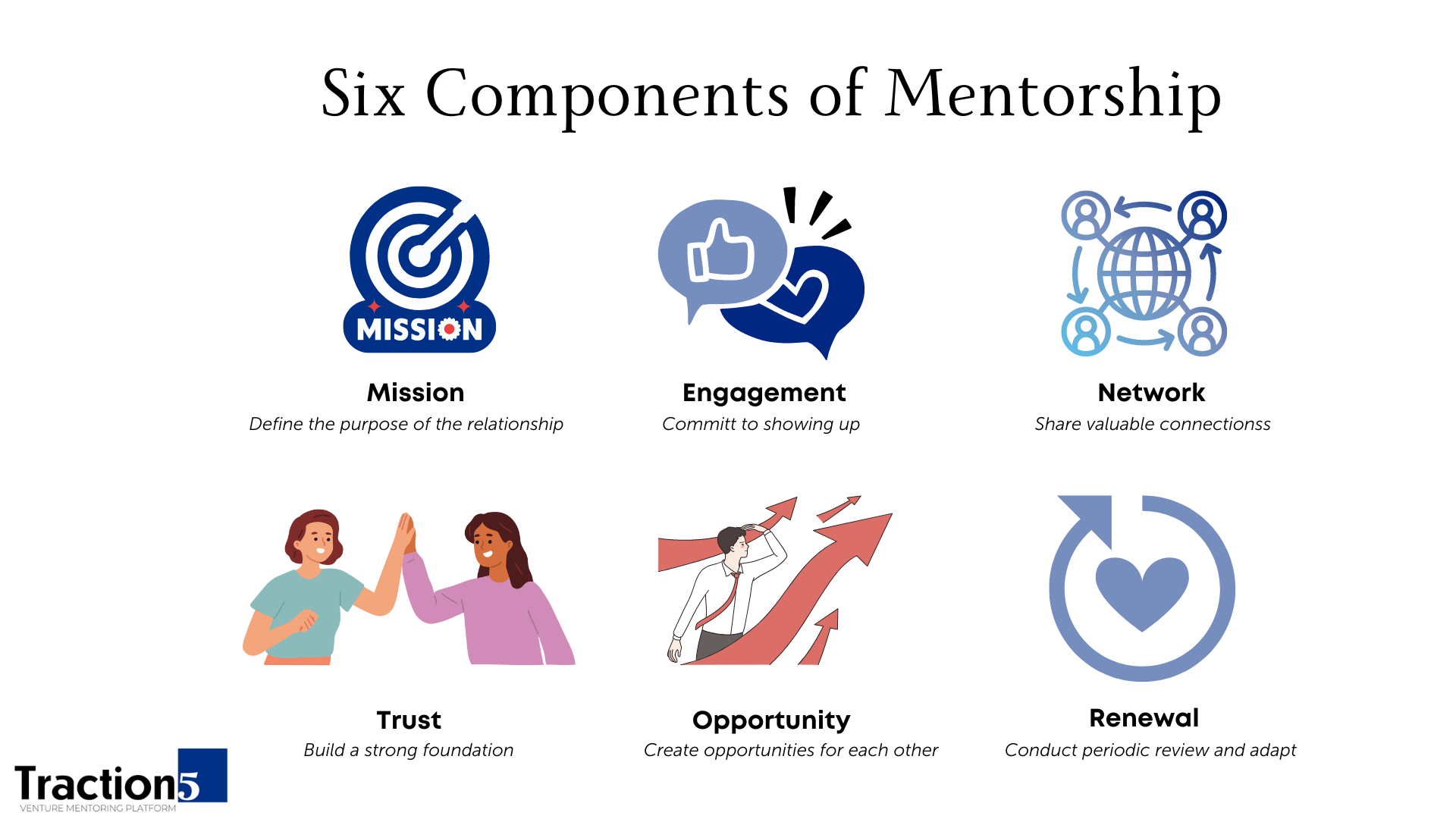The Six Key Ingredients of an Effective Mentorship Relationship
Mentorship can play a crucial role in personal and professional growth. In this blog post, we will explore the six key ingredients of a successful mentorship relationship: Mission, Engagement, Network, Trust, Opportunity, and Renewal. Let's dive into each of these components and understand their significance in fostering a fruitful mentor-mentee relationship.
1. Mission: Defining the Purpose
A clearly defined mission or goal is essential to maintain focus and drive in a mentorship relationship. Both the mentor and mentee should be on the same page regarding what they want to accomplish. A well-defined mission can help sustain the relationship over time and prevent distractions or loss of interest.
2. Engagement: Committing to the Relationship
To establish a successful mentorship relationship, both parties must commit to a regular schedule and frequency of meetings. Whether it's a more structured program with a set meeting frequency or a more informal arrangement, the level of engagement is crucial for developing the relationship and staying committed to its success.
3. Network: Sharing Valuable Connections
One of the most valuable contributions a mentor can offer is access to their professional network. Introducing mentees to the right people can significantly impact their career or business. However, it's essential to remember that networking can work both ways, and mentees can also make valuable connections for their mentors.
4. Trust: Building a Strong Foundation
Trust is the cornerstone of any successful relationship, and mentorship is no exception. Building trust takes time and starts with being dependable, such as showing up for scheduled meetings and following through on promises. As trust grows, the mentor-mentee relationship becomes stronger and more effective.
5. Opportunity: Creating Growth Potential
A significant part of a mentor's role is to create opportunities for their mentee, such as introducing them to potential clients or investors. While this may not be expected from the outset, providing such opportunities can be invaluable for the mentee and help build a lasting and mutually beneficial relationship.
6. Renewal: Periodic Review and Adaptation
Regularly reviewing the mentorship relationship is vital to ensuring that it remains valuable and productive for both parties. Whether conducted quarterly, biannually, or annually, these reviews provide an opportunity to assess the relationship and make any necessary adjustments. In team mentorship settings, this may involve changing the composition of the mentorship group to ensure the best possible support for the mentee.
By focusing on Mission, Engagement, Network, Trust, Opportunity, and Renewal, mentors and mentees can develop a strong and effective mentorship relationship. Remember that mentorship is a two-way street, and both parties must be willing to invest time and effort in nurturing the relationship for it to succeed. Keep these six ingredients in mind to unlock the full potential of mentorship and foster personal and professional growth.

